
9 minute read
Learn more about the Women’s Foundation of Colorado and also the work of six APIA women
CELEBRATING ASIAN AMERICAN Women Who Do It All
March is all about women! This is the month we celebrate Women’s History Month and International Women’s Day (March 8). While we should honor women every day of the year, this month reminds us that women deserve recognition for the amazing work they do — many who continue to work in male-dominated spaces and have to work twice as hard (often for less pay). Asian Avenue magazine shares the perspectives of six talented and courageous Asian American women in Colorado, who are impacting the sectors they work in. The diversity in their ethnic backgrounds, passions/interests, as well as their career paths show that women really can do it all!
Advertisement
Interviews by: Mary Jeneverre Schultz
The Women’s Foundation of Colorado (WFCO) stands as a unique community foundation creating more pathways to economic security for Colorado women.
Since the WFCO’s founding in 1987 as the only statewide community foundation focused on dismantling barriers to women’s economic prosperity, more than 80,000 gifts from generous donors have fueled the foundation’s work to release more than 30 research reports, help pass dozens of pieces of legislation, and grant nearly $19 million to nonprofit organizations throughout Colorado. Why women? Women are the co- or sole-breadwinners in 45 percent of Colorado households. By maximizing opportunities for all women to have access to education, job training, and career placement that is needed to secure livable wages, achieve pay equity, advance in their careers, or even start their own businesses, we strengthen the economic engines of our communities.
Women Achieving Greater Economic Security (WAGES) is a WFCO program helping women gain economic security and propelling more women into careers that enable them to meet the current and future needs of their families.
“It’s one of the coolest things we’re doing,” said Lisa Christie, senior director of communications of WFCO. Throughout the state, 23 grantees make up the cohort involved with advancing equity in wages. Organizations work with job training, soft skills, assistance in transportation and child care.
Interested in engaging, connecting or volunteering? Learn more at the WFCO website: WFCO.org.
ASIAN AMERICAN WOMEN’S GIVING CIRCLE In collaboration with the WFCO, Asian Avenue magazine is identifying interest in a giving circle for Asian American women.
“A giving circle is formed when individuals come together and pool their dollars, decide together where to give the money (and other resources such as volunteer time), and learn together about their community and philanthropy,” said Annie Guo VanDan, president of Asian Avenue. Once the cohort raises $2,500, the WFCO would match $2500, enabling the giving circle to grant $5,000 into the community. Members of the giving circle would discuss and vote on which areas of focus to donate the funds, such as education, equity/ inclusion, health, and APIA-related). If you’d like to learn more, e-mail annievandan@gmail.com.

The 2017 WFCO community-building and fundraising event, TOGETHER, with former First Lady Michelle Obama being interviewed by WFCO president and CEO, Lauren Y. Casteel.
Penelope L. Wong
Being a chef is one of the most challenging professions that yield very few rewards. As a female chef, some of the hurdles I’ve overcome include the inequalities women face in this industry from lesser pay to overall mistreatment. As an Asian female chef, I endured horror stories throughout the entire first decade of my last position. When I was first hired there, I was the only woman in a kitchen of 15 men.
When I took over as Executive Chef for that company, my peers in the industry and in my particular arena were making between $40‐$60K more than my starting salary as Executive Chef. I spent the better part of the next 8‐10 years working diligently to make that operation my own before I was finally compensated properly for the work I was doing. After spending over 20 years there, I was proud to know that I helped provide the new benchmark for executive chef’s salaries in the region within that arena.
One of the reasons I left the Executive Chef role and wanted to work for myself was because of work‐life balance. With an 8-year-old daughter at home, I struggled with how much of her life I felt I was missing out on.
I never would’ve thought that I would end up owning and operating a dumpling food truck. But this is my dream job. I’m cooking the foods
CHINESETHAI AMERICAN
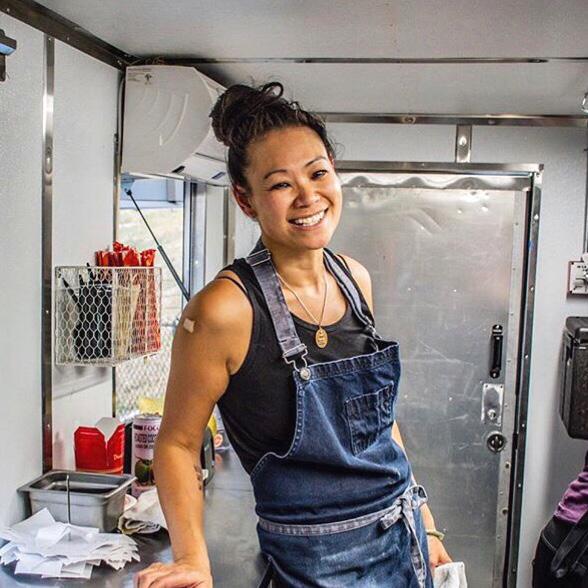
Follow on Instagram: @penelopewong @yuanwonton
Executive Chef/Owner of Yuan Wonton
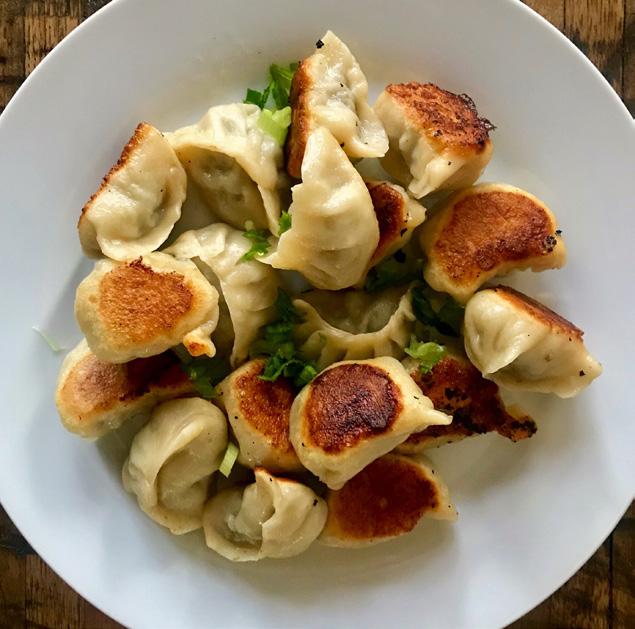
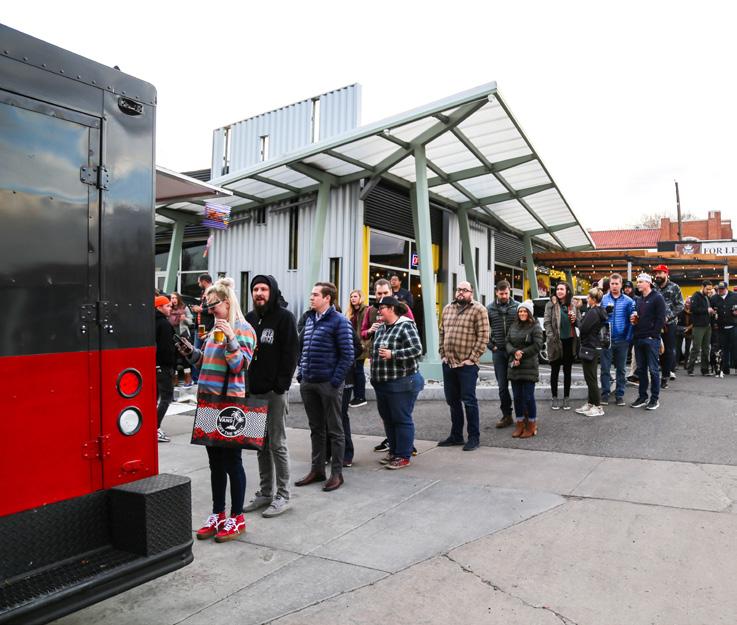
I want to share with Denver. I’m running my own business alongside my husband. We’ve been blessed with the best loyal fan base; we’re having fun and loving what we do every time we’re out on the streets. It’s an incredible feeling.

CHINESE AMERICAN Lisa Nguyen, PE

I pursued a career in engineering because I love to solve problems! Growing up, I participated in a lot of STEM-based extracurriculars, including MathCounts, Science Olympiad, MESA, and science fairs.
I now love working in the transportation industry, and in my current role at the Denver International Airport, I’ve been able to bridge my passions for transportation engineering, planning, and urban design together.
In a predominantly male industry, it can be tough to find diversity in upper-management and executive leadership positions. I would be lying if I didn’t admit to having to overcome adversity and biases among some former managers and colleagues.
As the executive director of the Havana Business Improvement District (BID) d.b.a. On Havana Street (onhavanastreet.com), I am responsible for day-to-day activities On Havana Street, created by by businesses and neighborhood leaders in the corridor of Aurora/ Arapahoe County and Aurora city staff in 2007 to build a stronger, better community.
In addition to more than 20 events a year, On Havana Street provides programming and benefits to the diverse businesses located along the Havana corridor including economic development, establishing a district identity and advocacy programs for the area.
I never thought I would go into business as I started my career in the medical field working at a retirement community in Hawai’i. Exploring other opportunities led me to community relations, and business and economic development today. C h a n c e H o r i u c h i Havana BID Executive Director JAPANESE AMERICAN Photo Credit: Phillip B. Poston
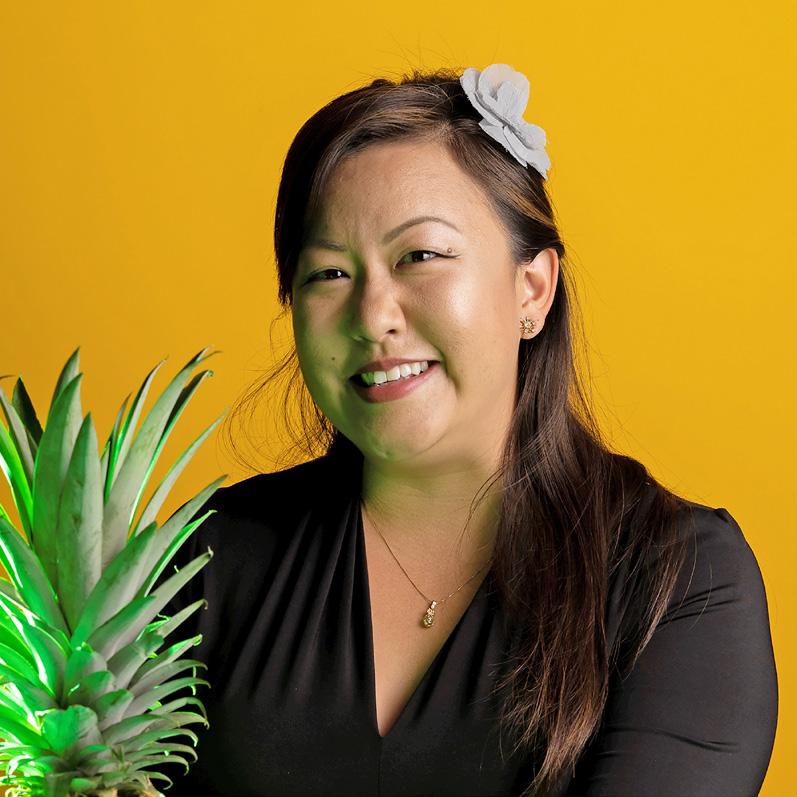
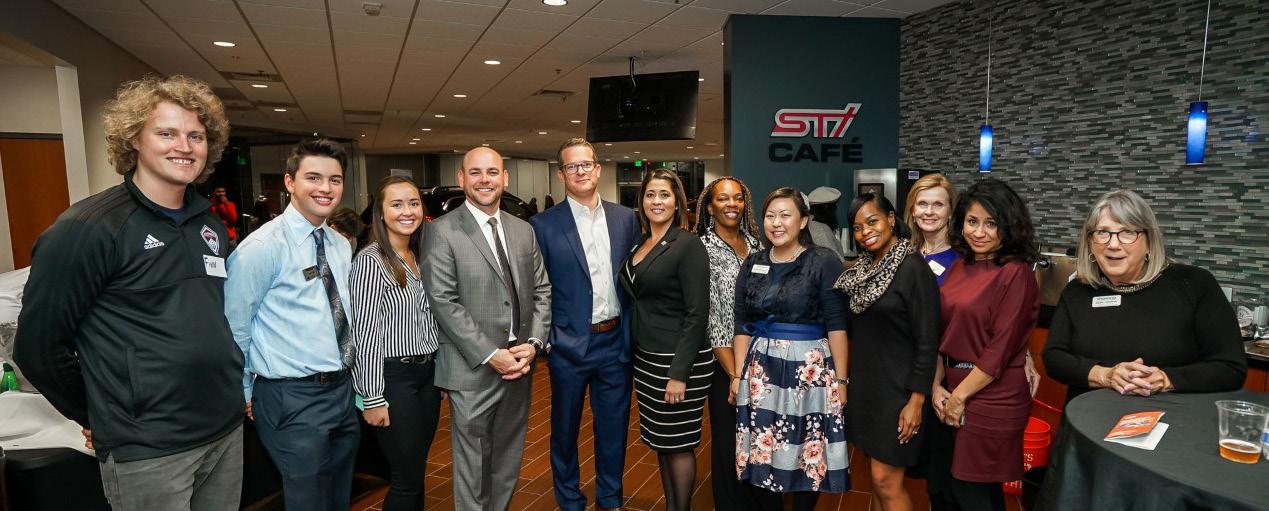
Follow on Instagram: @onhavanastreet
Photo Credit: Roman Tafoya
Jennifer M. Samuel
Follow on Instagram: @mybbp


FILIPINO AMERICAN
My husband and I own Bodies By Perseverance, a training and boxing studio in Denver for over 17 years. At a young age in dance to being the first Filipino-American Denver Broncos Cheerleader, I have always had a passion for fitness and dance. I am an entrepreneur with a fitness training certification business, Beast Mode Athletics, and 20 years of experience in developing marketing strategy business, JS Consulting. I’ve always had an entrepreneurial spirit. I love building, programming, and solving. I believe these traits carry throughout in all industries from building fitness programs for people to creating a marketing landscape for a company.
I am fortunate to have landed my dream job, and would love to continue training trainers and then retire as a professor in entrepreneurship and marketing.
I have three kids (ages 3, 6, and 12) and an amazing husband who is my business partner and drives me to do my best every day. I admire my mother, Giselle Rushford, and her passion to serve the Filipino and Asian American communities. She is well respected and is always connecting people. My goal is to be like her and to make a better future for my kids and especially show my daughter that she is strong and she has a voice. Co-owner of Bodies by Perseverance
Senior Policy Coordinator, Children’s Hospital Colorado
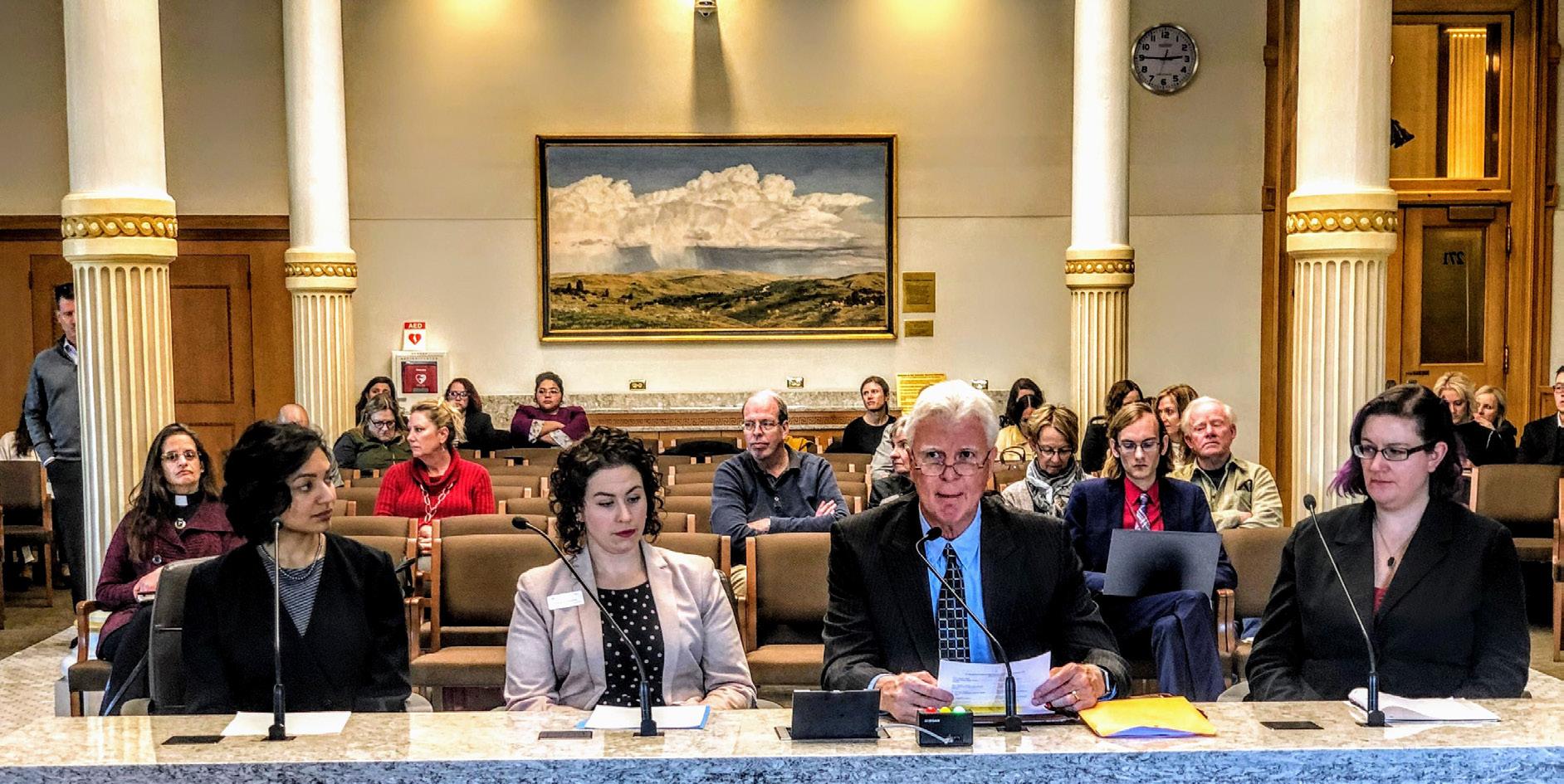
I’ve seen the ways in which our healthcare system can do more damage than good, especially for our neighbors who have been systemically marginalized. Deep injustice exists in our systems of care, in large part because profit can be more of a motivator than the moral imperative to care for people in the ways that matter to them.
In a country so rich and well-resourced, there are people who have trouble accessing a clinic because of a lack of affordable transportation, that there are people struggling to afford medication and out-of-pocket payments, that so many people who call this country home have gotten used to the idea that disease is something to be treated once it happens, not prevented before it shows up. It’s this passion and knowledge that we can and must do better in order to truly place people in the center of healthcare that set me on the path of public health policy.
A d i t i R a m a s w a m i

INDIAN AMERICAN
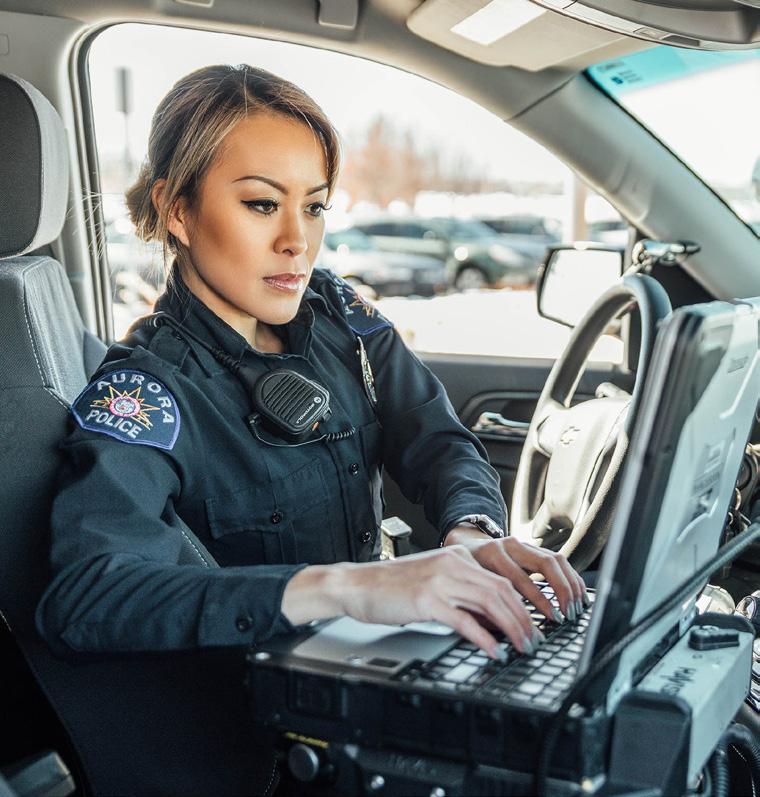
Stephanie Nghiem
VIETNAMESECHINESE AMERICAN
Becoming a police officer was one of the toughest decisions I have ever made. Many people ask why I chose this path. After reporting a traumatic incident to the police, the individual I reported it to lacked knowledge on how to handle the situation. Over time, I was left with no justice and no closure. Rather than blaming the police for the crack in the system I had slipped through, I joined the police force in hopes of closing that gap for others like me. Police are often called upon during what could be the worst day of a person’s life, and I wanted to be someone who could help people through those times. I saw the opportunity to truly make a difference in peoples’ lives, which is why I chose to pursue law enforcement.
In a male-dominated field, I always feel I have to prove myself and work twice as hard. I am the smallest one on my team and rumored to be the first Asian Female Officer in the department’s history. I know my physical limitations; I try to make up for it by training more at the shooting range and the gym. I refuse to allow my physical features to negatively determine my ability to do this job and protect my teammates.










